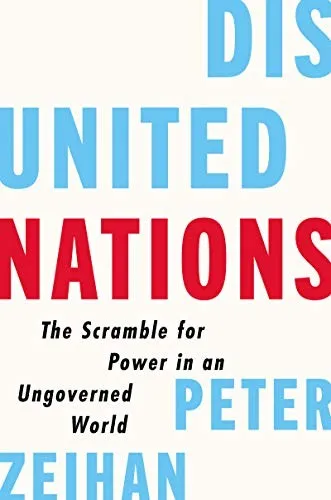1
mention
mention

Peter Zeihan presents a biased, incomplete and seemingly just slightly rushed geopolitical analysis of the past present and future world (dis)order, which despite its flaws makes for an informative, interesting and entertaining (due to his writing style) read. In particular, in stark contrast to popular narratives over the last decade or so, Peter argues strongly for an imminent collapse and fracturing of China. The core thesis is that the last ~60 years of rising global prosperity and peace (relatively speaking) is a highly anomalous state of affairs in the backdrop of history. This period has primarily been enabled by the global "Order" established by the American superpower (by far the economic and military "last man standing" after the second world war) to fight the Cold War. However, after the collapse of the Soviet Union the chief strategic justification for the Order is claimed to be severely dissipated. Combined with the energy independence afforded by the shale revolution, America as a highly self-sufficient nation is turning inward, and becoming increasingly indifferent to the world's affairs. It looks unwilling to get involved in wars like those in Korea and Vietnam, to continue nation building experiments in Middle East, or to continue to protect international trade routes. In Peter's view, this has dire repercussions for the global physical/maritime security that a lot of other nations have come to rely on. He examines the world's countries through 4 lenses (viable home territories, agriculture capacity, energy access and demographic structure) to divine whether they will thrive, or fall apart. From here on the book reads like a slightly watered down version of Guns Germs and Steel but with a modern focus. Much is said about mountains, (navigable) rivers, deep water ports, climates, natural resources, arable land, global supplies of oil, coal and natural gas, geographic viability of solar/wind, and demographic distribution (male/female ratios and age histograms). In contrast and unfortunately, not very much at all is said about culture / institutions (e.g. why isn't Argentina be a superpower? And why are Singapore, Japan South Korea doing so well?). Similarly, how can an analysis with a claimed scope of multiple decades not include climate change and its likely effects? Why not attempt at least a mention of the increasing relevance of cyber warfare, when our economies and national security are increasingly based on information processing and computers? In this sense, Peter's analysis and focus on physical barriers and the number of super-cruisers each country commands comes off as a bit outdated. By the way, why is India barely discussed? Finally, why should America not have a continued vested interest in the security of the global financial system and trade? The analysis jumps a little too quickly from "America is the de facto world police" to "America checks out completely, global chaos ensues and oceans become plundered by pirates". Overall, this was an informative read that I am happy to recommend, as long as one is prepared for and willing to forgive what seems to me like a little bit of tunnel vision and a little bit of jumping to unsupported conclusions where it counts. But if you're willing to cherry pick some of the analysis and fit it into a slightly more broader picture you'll have a good time! 4/5
— Andrej Karpathy
2020-05-31 on goodreads.com